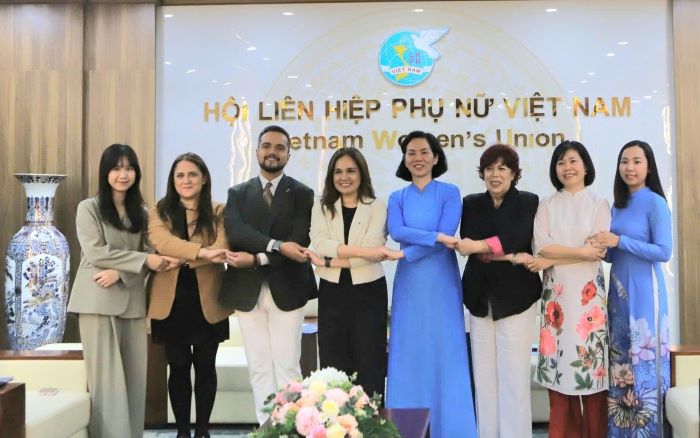Ethnic women fight for gender equality

These women are often restricted from social activities and politics; moreover, their farming and household responsibilities make it difficult for them to branch out on their own.
"Often, I feel unable to do new things or express myself because I don’t have knowledge and I can’t write," said Ninh Thi Tiep, a Nung ethnic minority.
"Often, I feel unable to do new things or express myself because I don’t have knowledge and I can’t write," said Ninh Thi Tiep, a Nung ethnic minority.
Kien Lao residents almost entirely support themselves through farming. Although living standards have improved recently, many locals still hold traditional social values, particularly archaic gender assumptions.
"Women in the commune are still living like they did in the feudal period. Their opportunities and abilities are narrowed by local customs," said Kien Lao Women’s Union Chairwoman Hoang Thi Lien.
Statistics produced by the commune’s Women’s Union show a population of more than 1,300 women over the age of 18, 22 per cent of Kien Lao’s population. only half attend union meetings. It also shows that a mere 20 per cent of agriculture technology students are female.
"Most of them do not know how to protect themselves from discrimination. They do not dare express opinions; old customs have set a precedent in their minds," said Chairwomen of Bac Giang’s Women’s
Groupo Volontariato Civile (GVC), an Italian NGO, has taken action and organised Mind the Gap, a project that focuses on raising gender equality awareness and working towards the inclusion of ethnic minority women in the rural districts of Bac Giang.
Their plan of action involves complex social change through integration and communication. For example, involving women in things like photography and football as a way of making the community more inclusive.
"Gender equality has been improved in the big cities and urban areas. However, the situation has improved very little in rural and remote areas. Women’s caravan, a non-dialectic dialogue and participatory method applied in
The first caravan, held late last month, was a forum where community members could discuss gender differences and inequalities.
"I was relieved after saying all the things I had kept bottled up for so long. We were able to talk directly and honestly with the men in the commune. I hope more events like this are held and the situation improves," said local woman Do Thi Nhung.
GVC’s Mind the Gap project will continue for one year and invest 53,300 Euros (US$73,900) towards gender inequality issues in Bac Giang.
It aims to help 6,200 women in the districts of Luc Ngan and Son Dong where over 50 per cent of the population are ethnic people and greater than 60 per cent live in poverty.







